Luke 16: 19-31 CEB I took a class once titled: Images of God. I took it because I missed the class the prior semester titled: Images of Christ. In the prior class they looked at how nations all over the world have depicted Christ throughout time. It’s an intimidating task, but I imagined it would be even more overwhelming to delve into the world of images of God. Jesus Christ had a form. People saw this man face to face. But then you decide we are going to look beyond the human nature of God and look at the divine as a whole. I have to admit, before I took the class, part of me was imagining the famous scene from Indiana Jones and the Raiders of the Lost Ark. I imagined my professor was going to open some secret lid to reveal the face of God. As long as I kept my eyes shut throughout the class I would be ok. Well, she didn’t have the ark. I survived the class, but barely. See, something happened throughout the semester. The class divided itself. It started as a class to understand the enormous nature of God and how God has a place in everyone’s life. It turned into a reconciliation meeting between the feminists in one corner and white males in the other. The LGBT in the front and the straight in the back. The Caucasian on one side, and the African Americans on the other side. And, if you were bold enough to try to mix things up: say, come to class early and sit on someone’s side or corner? Well, that just meant the division was flipped. It looked the same as the prior class, only mirrored. A great chasm had been fixed between us and them so no one whether they wanted to or not could come over. So how did that chasm get fixed in place? Well, the feminists wanted to talk about God being more than just an old white male. The African Americans agreed but felt they needed to talk more about God being for the oppressed. The extremists didn’t want to talk about God in anything relatable and wanted to make God something cosmic and distant. The white males wanted to be heard as a voice and not just as a group who was quashing everyone else’s relation to God. And it just kept going down that path. Until, it was impossible to do anything but agree to disagree. Sometimes it is appropriate to agree to disagree but when you are talking about the Children of God not being able to agree on how they are loved by God. It hurts. There we were, all of us, in the same room, but somehow we were all in different places. So we come to our parable. I have to admit, I have heard this scripture preached more times than I can remember. If you figure the lectionary recycles itself every three years I have been in church my whole life. I could have heard this scripture preached around 8 times, 9 max. Every time it is the same message: God loves the poor and less fortunate so we need to show kindness to the least of these. That message is there. Remember it and keep it on your heart. I am going to somewhere else today. There are no ways I can, easily or not, fully explain God. I did not yearn to be in my professor's shoes in that Images of God class. God is bigger than any of us can comprehend. But, I do believe God comes to each of us in a way we can relate to. I don’t want to spend the next few minutes labeling what God is or isn’t. If you want definitions read, Your God is too Small by JB Phillips. It is a great book and a somewhat easy read. I just want to focus some fuzzy aspects of our canvas and clarify. In our parable I want to bring a single word out in the forefront. Of all the words Jesus used to tell this story why did he use the word Hades? Hades isn’t Jewish. He was talking to a Jewish audience so the word should have been Sheol. Sheol is the Jewish word for afterlife and usually not a pleasant afterlife. It's described as a place where one is completely disconnected from God. You died and went somewhere where God was not. In contrast, the parable, and the word Hades, was directed at the Pharisees. They had been, to put it nicely, cutting up in the back corner. Sheol wouldn’t worry or scare them. Perhaps they thought they were righteous enough to warrant God carrying them away like Elijah in a flaming chariot thus avoid Sheol all together. Perhaps. Hades is Roman. If we know our mythology we know a god resides in Hades, so the divine lives there. Also, everyone, good or bad goes there eventually. There is no escaping it. If you notice the parable both characters go to Hades. Listen: The poor man died and was carried away by the angels to be with Abraham. The rich man also died and was buried. In Hades, where he was being tormented, he looked up and saw Abraham far away with Lazarus by his side. It wasn't that he was able to see heaven from his torment. He saw Lazarus from the same realm, the afterlife. They both died. They both went to Hades. Even in death we are still in relationship with those we refuse to see. Even in death we are still in relationship with God. Hades was really Jesus explaining what the rich man was doing in life. The rich man was a chasm builder. Lazarus, probably more out of necessity than want, tried to create relationship with the rich man. He lay at his gate. He longed for the rich man’s scraps. Both of these men were broken. Lazarus was broken physically. The rich man was broken spiritually. Only one of these men were a chasm builder. We create chasms all the time for many different reasons. One of the most difficult realizations in the world is coming to the understanding that God still wants a relationship with the person you are polar opposites with. With the person who has hurt you, or the person who has hurt someone you love. If we all have the possibility to be a reflection of God it will eventually hurt ourselves to cut any person out relationship. That doesn’t mean live with the pain the person is inflicting on you. By no means. (The best choice my mother ever made was leaving my step dad, who was an abusive drunk.) What it does mean is coming to terms of how they too are creations of God. The rich man was separated, not by God but by his own poor decisions. Decisions he still didn't understand even when he died. He doesn’t ask for repentance for creating a divide between him and Lazarus. Instead he tries to send Lazarus on errands for the sake of his family. In the same way, in relation to the Images of God class, all of us failed to destroy divisions in our class because none of us were bold enough to listen and honestly engage the other side. Some of us listened and some of us engaged but none of us did both. By myself I can do nothing about those divides created in that class... Unless, I turn to God. God gave us communion. It is a meal that has been the subject of quite a few divides in the church. If you nit-pick the table you are bound to disagree about something. For today lets look at this table like a family meal: we sometimes bicker, we sometimes leave the table upset, but at the end of the day we are still invited back. This is our family meal. This is the ultimate chasm destroyer. But, we have to be willing to come to the table first. My class began their semester with the book, Old Turtle. We took turns reading from the pages. I will end this meditation with the same book. I loved the message so much I made the video. Enjoy. Like what you are reading? Join the conversation on Reddit! http://www.reddit.com/r/FigTreeChristian/ . There you can also share blogs and articles that extend the discussion, or just add to the discussion on this meditation. Either way, look forward to seeing you there!
Also, if you are in the Atlanta area consider coming to the planning on Sunday, October 6th . For more information check out Upcoming Events! Luke 15:1-10 NRSV Sermon begins at 2.54. Below is the transcript. 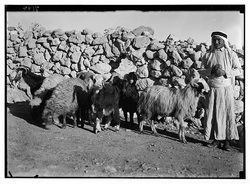 When I think sheep in the bible I first think about the parable for today. I can visualize the Shepherd in my mind, and even if I couldn't, there are dozens of examples of artists who have done the visualization for me. In fact, over hundreds of years, there have been those bold enough to take the parable and place Jesus as the Shepherd who lost the one sheep. A Good Shepherd and Parable of the Lost Sheep Hybrid. I also think about goats. I think about goats because of another parable located in Matthew, the parable of the Sheep and Goats. You know, God separates the people like a shepherd separates his sheep from his goats. The sheep are good because they helped the least of these and the goats are bad because they didn't. There are no goats in today's parable, but I want to connect today's parable using goats. Ready? Here we go! 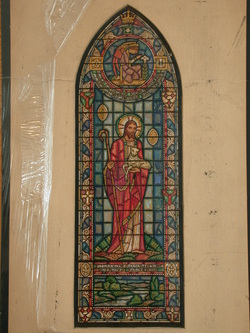 Sheep are adored in the bible. They are mentioned more than 500 times! They are illustrated in icons and other religious images even more than that. When you imagine Psalm 23, what animal do you picture yourself to be when you think of the Lord being your shepherd? I bet most if not all of you think sheep. This is probably because of the Sheep/Goat parable and the multitude of images of Jesus with sheep. Those fuzzy little balls of fluff are loved! They were an agricultural staple to an agricultural people. They gave meat, wool and hide. They were needed to survive. But goats were an agricultural staple too, and easier to care for. While sheep had to be constantly moved to greener pastures, goats were accustomed to the rough landscape and could eat almost anything. They took less maintenance and gave just as much product. Milk. Hide. Meat. Why would Jesus use the goat to illustrate bad choices? I blame Azazel. 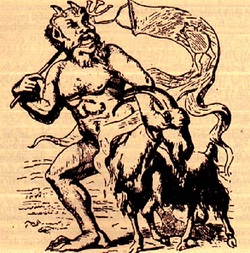 Who is Azazel? Back when the Israelites lived in the wilderness they were having issues following rules and staying away from sin. (I know, right? The group who made a graven image of a cow because they were impatient had a problem keeping up with the rules. Crazy, I know.) Well, they did. This scared them because they saw God as a vengeful god, punishing to the third and forth generations. It would be centuries before a prophet would come and tell them this wasn't the case, so God gave them an opportunity to wash away the sin. It was called the Day of Atonement, or Yom Kipper. In the beginning Aaron, being the head priest, would sacrifice a bull for himself and would set aside two goats for the Israelites. One of the goats were sacrificed with the bull and the blood was used to purify the temple. The other goat was given to Azazel. This was done by ritualistically placing the Israelite sin on the goat and sending it out in the wilderness for the demon, Azazel, to consume. In Hebrew Azazel means something like, “the goat that escapes.” Therefore, the term scapegoat was coined. The person who was chosen to release the goat into the wilderness would have to clean up and change clothes before they were allowed back into society. Now, there is nothing wrong with ritual and using it to help us understand God and our life better. The original context of the scapegoat was made for such a process. The problem comes when the ritual becomes something more than a ritual. Or in other words, when the scapegoat goes from being a goat to be an actual person. The thing that is so alluring about the scapegoat is the sinner doesn't have to accept the consequences for their sin. They can symbolically place their sins on something else and send it out in the wilderness, never to be heard from again. Then, their hands are washed of it all and they can move on with their lives. As a ritual, this can be a really poor symbol for personal accountability, but at least no one person is punished for the sins of others... 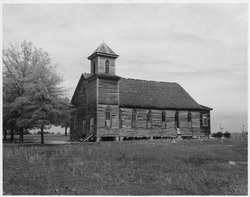 But I think the scapegoat has taken on a more sinister role as the ritual has died away, but the need to “throw-away” sins remains. In recent history I think of the Jews during the Holocaust After WWI the Germans were economically destroyed. The only group that appeared to be unaffected were the Jewish business owners. All of Germany held the blame, but it wasn't difficult to begin to set up the Jews as the scapegoat. We all know where that led. In very recent history I think of the desperation the church has felt as their numbers have dwindled, and many congregations have begun to point fingers to lay blame. In many of these congregations, instead of accepting their failures and turning the page on a new chapter, they pick one of their own to lay the blame on. They make a scapegoat out of someone within the flock. They lose a few congregants and can continue down the same path. So here is where I get to the parable. First, there are no goats. In this parable the shepherd only has sheep: needy, time consuming sheep. They are all the same, all loved and cared for. Second, even if there were goats it is not the flock's responsibility to separate them. It is only the shepherd who decides who to separate the flock. Third, we try to do it anyway, and we tend to do it by turning a sheep into a scapegoat. The scapegoat was never meant to be one of our own. When I hear the parable of the lost sheep I can't help but think of how that sheep became lost. It seems in today's churches we are sending our own into the wilderness as the scapegoat. It is appears it's easier to feed the demon Azazel, that to actually deal with problem. To feed one another instead. This belief is false. We are sacrificing one of our own for the sake of the whole, only we are crippling the whole in order to do it. 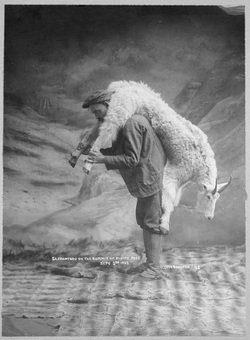 OK, so what I am about to say is going to sound really traditional, but I'm going to go about it in a non-traditional way. We live in a world where we willingly sacrifice one of our own for our own well being. So, it is the collective us who causes the one to be lost in the wilderness. We turn a sheep into a scapegoat. Well, based on the parable, the shepherd is going to try to bring the lost sheep back into the fold. Here is the problem: There is only one way to redeem a scapegoat. To redeem a scapegoat, one must take the scapegoat's place. Christ died for all our sins by taking the place of the one: Any ONE we have chosen to put our sins on to avoid relationship, if they are found Christ takes their place. Any ONE we have othered and sent into the wilderness, if they are found Christ takes their place. And, it's in taking their place, releasing them from the unbelievable burden Christ dies and redeems all. The Good Shepherd becomes the ultimate scapegoat, feeding the thirsty cravings of Azazel. Christ took the place of all of us who have been othered and pushed into the wilderness. Christ took the place of all of us who carry the unhealthy burden of the sin of the community. And, whether we are the ones washing our hands of the act, or the ones who Christ is taking the cross from, that act saves us all. Like what you are reading? Join the conversation on Reddit! http://www.reddit.com/r/FigTreeChristian/ . There you can also share blogs and articles that extend the discussion, or just add to the discussion on this meditation. Either way, look forward to seeing you there!
Also, if you are in the Atlanta area consider coming to the planning on Sunday, October 6th . For more information check out Upcoming Events! Luke 15:1-10 CEB If you want to be successful on the internet here is a must: Stick to one side of the spectrum. Don't ever sway from that spectrum. If you can't do that and want to live in the middle, make sure to do it without really speaking your voice. Say a bunch of something without saying anything at all. People don't want to hear your opinion. They want their opinion validated. In this realization, we must be in trouble here. I have never been concerned with following the hard line of right or left, liberal or conservative, traditional or radical. I have been far more concerned in trying to get it right, even if what is right might draw ire from those who just want to hear the right words to validate something they already believe is true. Oops. 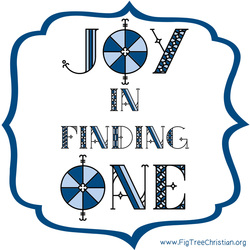 For those of you who are here every week, you already know I immerse myself in prayer with this question: If Jesus had the internet, how would he interact with it? I have a growing realization he would probably be ignored. See, he never spoke to try to validate an already believed point. He said what was right. He hardened his resolve over and beyond hardening his heart. I have this growing realization Jesus would have trouble getting the page hits to his website, because he couldn't pick that group or person to ostracize. (I have to note, I know some really great bloggers. This is not indicative of all who share on the internet, just a realization of a very popular method of how writers get hits to their websites.) His words still angered and ostracized people, but those people chose to cut themselves from the message. They were not cut out of the conversation by the message. There are two truths I pull from this scripture. I realize focusing on one over the other would garner more shares and likes. These two truths come from both sides of the spectrum and accepting both require opening your heart over and beyond your ideology. (BTW-We all have ideologies.) She is God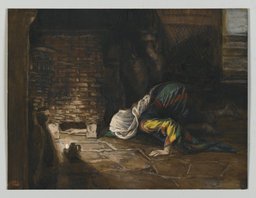 Here is a crazy idea: the woman in the parable is an illustration for God. I know, it is hard to wrap your head around.Those who have spent the greater part of their lives in church, might have only heard masculine language for God. It's difficult to hear Jesus might have used a female illustration to describe Her. In this case, like other Luken moments, Jesus shares two parables, one featuring a male and one featuring a female. Both the parables share the same message, so why tell the same story twice? I say culture. The first parable uses an understood image for God, the good shepherd. People could easily see this There would be no need to share the second parable. Yet, he does. This a moment where the image of God is expanded. God is like a woman who lost a coin. Scandalous. Not the middle of the road message either side of the listening body could easily take. For a masculine centered world, the sinners in the audience would have turned an ear while being taken aback. For a Pious rule-following elite, this would have angered the religious body in the audience beyond their initial anger. So, what can we take from duality of the parables? We are all images of God. Male and Female- we are all made in God's image.God comes to us as the widow, the wife and those who are considered less than. This is about 100% This isn't an all or nothing game, because sometimes the money is lost. Sometimes the wolves devour the sheep before the Shepherd can find it. This is an all for the sake of all game. It means we celebrate when the sheep is found, and mourn when the coin is actually lost. There is no room for, "Well, they will get what's coming to them." There is no anger in this game. There is only joy or remorse. I clearly see the Occupy Wallstreet movement in opposition to this scripture. I wrote about it months ago, and my opinion stands. The difference between then and now is I believe I can articulate my beliefs better. We need to realize who we are 'othering,' or setting apart from everyone else. Are we the ones throwing the sheep out into the wilderness; dropping the coin behind the dresser? The Occupy movement gives this perception like we should cut off the 1%. They are lost without any hope for redemption. What the Occupy movement did for Christianity was gave us a group to shine the light one and search for. In reality the Occupy movement has brought the radical truth of this parable to the forefront. Sometimes the one is the rich, powerful, and elite. God wants this group to find salvation too. As humans we all have those people who we would rather leave in the wilderness. The religious elite in the parable pointed to sinners. I struggle with those who have inflicted mental scars on me personally. I didn't cause the inflictors to be lost, but I sometimes wish the people who have caused those wounds would simply stay behind the dresser. Yet, God, merciful loving God, wants us all. The wounder and wounded. The poor and the rich. The sinner and the 'pious.' God wants redemption for everyone and everyone is made in the image of God. Maybe, at least, we can all get behind that. For, "joy breaks out in the presence of God’s angels over one sinner who changes both heart and life.” Like what you are reading? Join the conversation on Reddit! http://www.reddit.com/r/FigTreeChristian/ . There you can also share blogs and articles that extend the discussion, or just add to the discussion on this meditation. Either way, look forward to seeing you there! Also, if you are in the Atlanta area consider coming to the planning on Sunday, October 6th . For more information check out Upcoming Events! Tissot, James Jacques Joseph, 1836-1902. Lost Drachma, from Art in the Christian Tradition, a project of the Vanderbilt Divinity Library, Nashville, TN. http://diglib.library.vanderbilt.edu/act-imagelink.pl?RC=54791 [retrieved September 15, 2013]. Original source: http://commons.wikimedia.org/wiki/File:Brooklyn_Museum_-_The_Lost_Drachma_(La_drachme_perdue)_-_James_Tissot_-_overall.jpg.
John 3:13-17 CEB The last half of the 60's, specifically 1969 was a game changer for American culture: We were still being rocked by the assassination of Martin Luther King Jr in 1968. The Vietnam War was fubared on an epic scale. PBS (Public Broadcasting Network) began , which included Sesame Street in their lineup. Woodstock happened. The ATM and the Boeing 747 made their debut. Space truly became the final frontier. What I want to focus on is space. For the first time ever we saw an image of the earth, a big blue ball hanging in the immense black space. The term, Spaceship Earth, was coined. We began to see how the Earth was a limited resource. There were no planets we could easily jump to, to reap the resources. It was us, and only us. This image was brought to my attention by Rev. Dr. Dick Hamm, former General Minister and President of the Christian Church, (Disciples of Christ.) He was trying to show how the huge changes that happened around the year 1969, and a few years before, brought a paradigm shift that also changed Christianity, (even if Christianity still isn't on board.) His conversation went to the green movement. My mind realized how diametrically opposed this relatively new concept was to Christianity. The secular world teaches us to focus on scarcity over abundance. Christianity teaches us abundance over scarcity.  Now don't get me wrong, Americans really should practice using their resources more frugally. I can remember during the Atlanta drought we had to conserve all the water we used inside and outside the house. There were little things we could do: turn off the faucet while brushing our teeth. Don't water the lawn during the hottest hours. Eventually not watering our lawn at all. Take showers instead of baths and take shorter showers when we do. Many of these things I already did. I have always been good about turning off the lights in the rooms I am not using and turning off the faucet, even for seconds, if it saved water. To be honest, most of my reasoning was to cut the electric and water bill down. I wanted to save money. Yet, during the drought it baffled and confused me when someone shared, how they went to Florida and just turned on the faucet just because they could. They let the water run for minutes for no reason. I was speechless. During the drought I thought about how fortunate I was I still had the water to use. In other parts of the world, when a community has a drought people die of thirst. I thought others would see how fortunate they were even when people had to cut back on their excess a little. Instead, they wanted the ability to use their excess again. I was wrong. But I keep this in conversation with my Christian beliefs. Most importantly I think of the parable of the talents. A rich ruler, leaving town, decides to leave his riches in the hands of his servants. Three servants; acting in two different ways. Two of the servants come from an abundant theology. They invest the money and make even more to give to the rich man upon his return. The final one comes from a scarcity theology, the money was a limited resource. He could lose it, so the man buries it. It gains nothing. In the end, the servants who rightfully invested the money to make more were rewarded. The third servant was punished. Scarcity believes there isn't enough.Those who act out of scarcity are bitter, resentful, and/or scared when someone else gains. Scarcity means there isn't enough. Scarcity believes you can't celebrate when someone else in your field gets the attention and praise because your field is a limited resource only few can achieve. Scarcity causes us to stockpile what we have instead of using it. Now I'm not discounting the idea of saving for a rainy day. I'm not raising up the grasshopper over the ant. Saving our abundance for famine is biblical. Remember Joseph and the Pharaoh? There were seven years of plenty followed by seven years of famine. It was because the people were called to save they survived the famine. Saving is different from scarcity theology. Scarcity theology draws us in and separates us from our neighbor. When we come from a place of scarcity our friends become enemies. It slowly destroys us from the inside out. I think of all those dying churches out there and see how they are coming from a place of scarcity. Abundance believes there is enough.Those who act out of abundance celebrates when others obtain and achieve. There is something joyous when someone else makes it, and when someone is struggling, abundance urges us to help them out. If we come to a place of abundance we begin to realize our enemy isn't really our enemy at all. Abundance makes us want to share. Love can only come from an abundance theology. There is no way to relate to our neighbor in a healthy way unless we are willing to share and celebrate with them. So here is the two story billboard warning flashing in your face: It is difficult to live in a world of limited resources and act abundantly, but that is what Christ calls us to do. Christ enters into the conversation and makes us rethink. I think an individual human life is the most limited resource out there. That person has one life, one chance to get it right. When that person is gone there will never be that person ever again. Jesus, in a scandalous act of love, willingly sacrifices his precious limited resource, his life, for the sake of all. He wanted us to act abundantly towards one another and he was going to be the ultimate example. Out of our fear of scarcity we took his life, and out of his abundance he gave it. It really makes everything else seem petty. When Christ was willing to die to fulfill the point, why are we anxious and worried when God might be calling us to celebrate someone else's victory, or help someone else out? Live in that scandalous love that turns your enemies into your friends, reconnecting the Body of Christ. Don't stay and keep; go and do! Like what you are reading? Join the conversation on Reddit! http://www.reddit.com/r/FigTreeChristian/ . There you can also share blogs and articles that extend the discussion, or just add to the discussion on this meditation. Either way, look forward to seeing you there!
Also, if you are in the Atlanta area consider coming to the planning on Sunday, October 6th . For more information check out Upcoming Events! Like what you are seeing consider subscribing at the right, or joining the conversation on our subreddit: http://www.reddit.com/r/FigTreeChristian/.
In one of the many Oz books, written by L. Frank Baum, Dorothy finds herself trapped in a storage room. Outside the tiny room is her impending doom and inside is a mechanical man simply called, ‘the army of the king.’ When wound up the machine announces his self to be Tik Tok. As Dorothy and Tik Tok talk the machine goes into great detail over his creation. Apparently, his two creators were the absolute best in their field. Together they were able to create anything. They were so good their creations became their doom. One, painted a picture so perfectly it became real and he fell into it never to be heard from again. The other, saddened over the first’s loss, made a ladder so tall he climbed himself into oblivion. 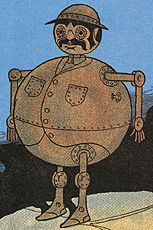 Tik Tok knew his internal mechanics were incredibly intricate and he would cease to function if anyone opened him up to even try to understand the complex science used to make him work. He didn't want to be dismantled. He was unique and one of a kind. Existing was a way his creators continued to live through him. In a way, he was a reflection of the people who painstakingly spent years putting him together. While a children’s book may not be a scholarly example it widens our view of the text for today. The letter to Philemon is short. It only covers two pages in the bible. It says tons within those pages. Specifically, think about what Paul is reflecting to Philemon in this letter. I promise you, there is a connection, but first, the scripture. I will be pulling the text from the Common English Bible: Philemon, I thank my God every time I mention you in my prayers because I’ve heard of your love and faithfulness, which you have both for the Lord Jesus and for all God’s people. I pray that your partnership in the faith might become effective by an understanding of all that is good among us in Christ. I have great joy and encouragement because of your love, since the hearts of God’s people are refreshed by your actions, my brother. Therefore, though I have enough confidence in Christ to command you to do the right thing, I would rather appeal to you through love. I, Paul- an old man, and now also a prisoner for Christ Jesus- appeal to you for my child Onesimus. I became his father in the faith during my time in prison. He was useless to you before, but now he is useful to both of us. I’m sending him back to you, which is like sending you my own heart. I considered keeping him with me so that he might serve me in your place during my time in prison because of the gospel. However, I didn’t want to do anything without your consent so that your act of kindness would occur willingly and not under pressure. Maybe this is the reason that Onesimus was separated from you for a while so that you might have him back forever- no longer as a slave but more than a slave- that is, as a beloved brother. He is especially a beloved brother to me. How much more can he become a brother to you, personally and spiritually in the Lord! (For the full text click here) 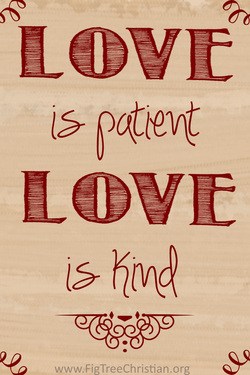 In context of this particular letter it was written about 30 years following the death and resurrection of Jesus Christ. A lot can happen in 30 years. An unsure Peter becomes the rock on which the church is built. Household churches begin to gather across the Roman world, and Paul has a conversion experience on the road to Damascus. Focusing in on Paul, it is great deal because of him we know what happened following the Gospel accounts. He wrote letters: letters that were treasured and saved by the people he wrote them to. Letters that were copied and sent to other congregations so they could treasure them also. Letters that would shine a light into early Christian worship. In this case, a letter that would also shine a light on the person writing it, Paul. Throughout his many letters Paul seems to hold two Christian concepts the highest: faith and love. Let’s remember, these early churches would be the first to be hearing the story of Jesus second hand. Having faith the stories were true was important to understanding everything else. Today, we have it much easier than they did. If we need to know something that happened 30 years ago we can look at old news reels, read books written from that year. If we want, I am positive there are websites dedicated to the year 1983. For the early church, they had none of that; they had the stories. Paul vouched for the stories as a person who went through a first hand experience, the Damascus experience. Still, the people listening and learning from Paul also had to take his experience on faith. Other than faith, he focused on love. Not a simple love that absentmindedly gives chocolates on Valentine’s Day. No, this love seeks with patience, kindness, humility, and need for the greater good. (1 Cor. 13) Faith hope and love with the greatest of these being… love. This is a faith, hope, and love also expressed in 1 Thessalonians as Paul writes, "We always thank God for all of you when we mention you constantly in our prayers. This is because we remember your work that comes from faith, your effort that comes from love, and your perseverance that comes from hope in our Lord Jesus Christ in the presence of our God and Father." (1:2-3) 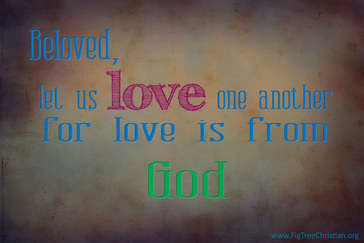 Now if I may pull just one more scripture into the mix: 1 John 4:7-8. "Beloved let us love one another, because love is from God; everyone who loves is born of God and knows God. Whoever does not love does not know God, for God is love." God is love. Perhaps I am going a step too far by adding First John because it was not written by Paul- but it is the flashlight I’m using to shine a light on Paul’s letter to Philemon. By saying God is love you are moving from acting love to being love. It is the difference between creating a reflection by looking into a mirror and being the reflection. When love is acted in a Christian understanding those acting it become reflections of God, because God is love. Does that make sense? In Paul’s letter, he is dealing with a deep issue, an issue he didn’t vocally endorse: slavery. As he wrote in his letter, he had every right to be forceful with the issue and tell Philemon to let his slave free. However, Paul is acting in love and we see reflections of God in his words.
If we can let go and let God, we can become a shining beacon of God’s everlasting love in the world. As St. Francis of Assi wrote: Preach the gospel at all times, and when necessary, use words. Yes, words are necessary, but they are worthless syllables, vowels, and consonants if we are not reflecting love or if we are reflections of something other than the divine. Work at being a beacon of God’s everlasting love, and be a reflection of God. |
Categories
All
Archives
October 2023
|


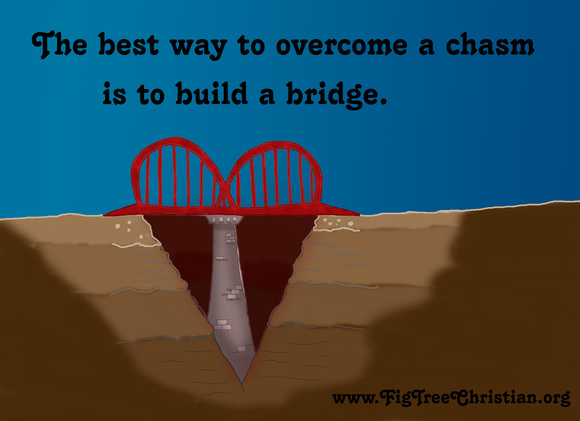
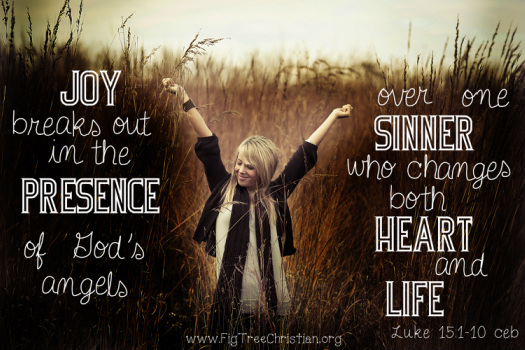

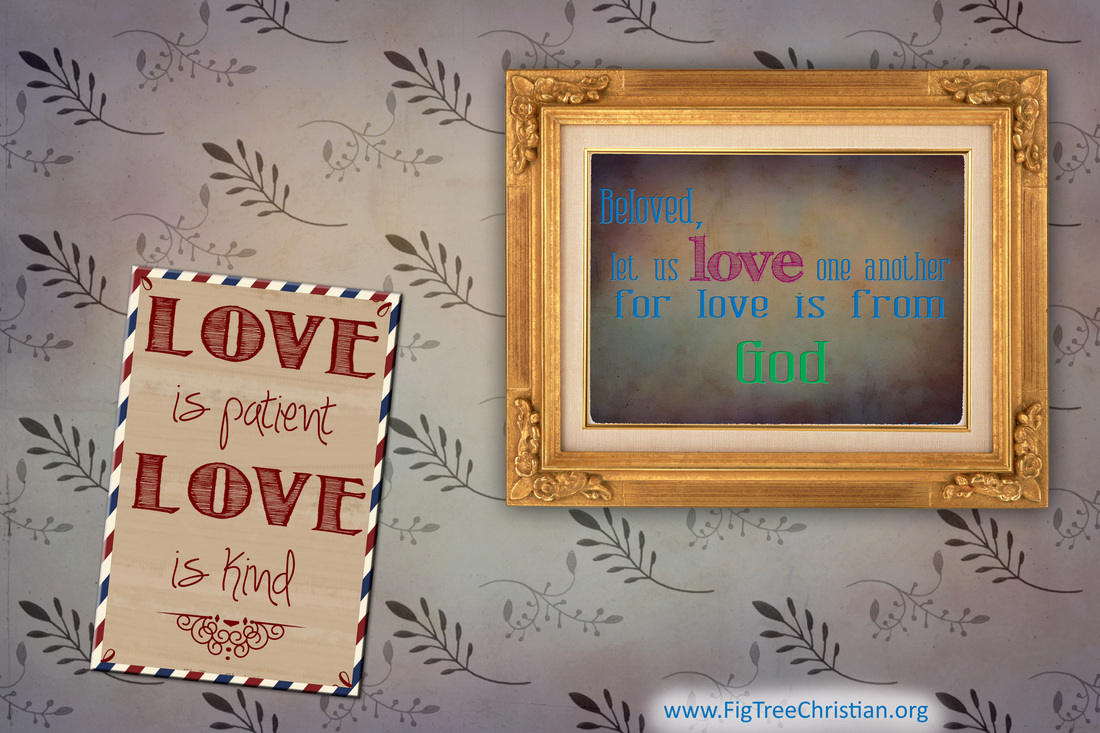

 RSS Feed
RSS Feed